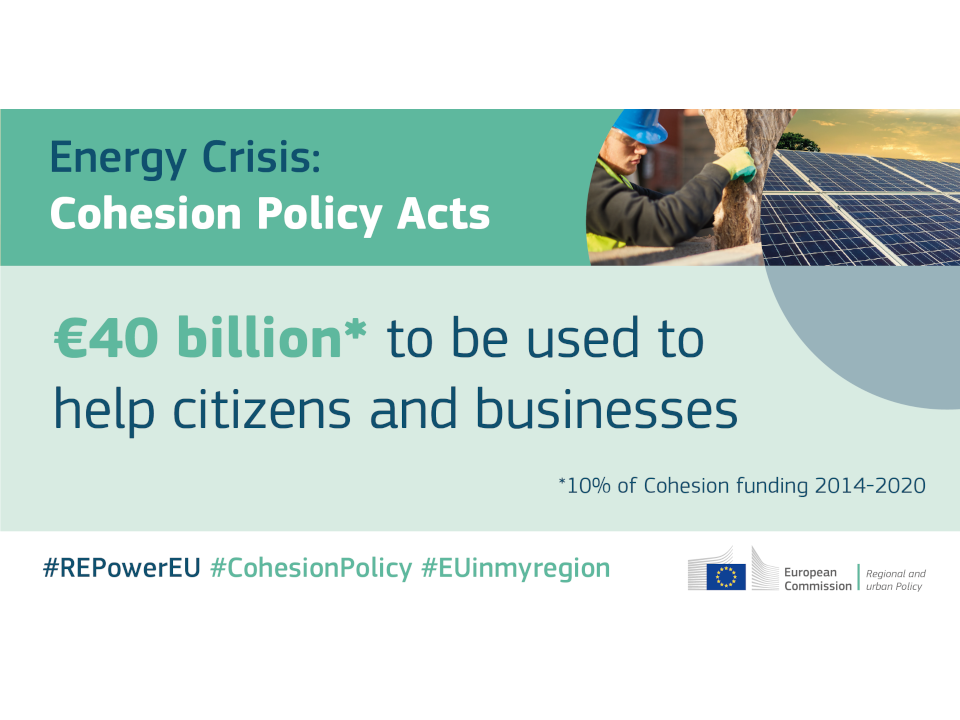To help citizens and SMEs facing the challenges resulting from the current energy crisis and high gas prices in the EU, the Commission presented new, targeted and exceptional measures under the 2014-2020 Cohesion Policy framework.
- 18 October 2022

The measures would allow Member States and regions to redirect up to EUR 40 billion unused funding from the 2014-20 programming period. Member States and regions could also apply 100% co-financing rates, meaning that the EU budget would fully cover the costs.
When presenting the proposal in the press conference at the European Parliament, the Commissioner for Cohesion and reforms Elisa Ferreira said: “Once again Cohesion Policy steps in. We have been at the forefront in multiple crises, from the Covid emergency to supporting countries and regions welcoming Ukrainians fleeing Russia's aggression against Ukraine. Now, the policy will play a role in tackling the energy crisis, supporting SMEs and vulnerable households.”
Key features of the proposal:
- Member States may more easily provide support to small and medium businesses (SMEs), vulnerable households and employees and self-employed
- The European Social Fund (ESF) may provide support to vulnerable households to cover energy consumption costs. It may also support short-time work schemes to help employees and self-employed. The European Regional and Development Fund (ERDF) may support working capital of SMEs strongly affected by rising energy prices.
- All Cohesion Policy funds (ERDF, ESF and Cohesion Fund) may be used to offer support to these measures through so-called cross-financing, and by making use of REACT-EU resources.
- Resources for all three categories of regions (more developed, transition and less developed) may be used to support these measures.
- All the proposed actions may benefit from 100% co-financing.
- Expenditure will be eligible as from 1 February 2022
- Already completed operations may be supported as well
- The budget for these exceptional measures may amount to 10% of the total national cohesion policy funds allocation for 2014-2020 (i.e. nearly EUR 40 billion).
The Commission presented these measures to the co-legislators in the framework of the ongoing legislative negotiations on the proposal for a regulation amending the Regulation on the Recovery and Resilience Facility as regards REPower EU chapters in recovery and resilience plans of the Member States.
These targeted changes build on the same mechanics as for recent flexibilities offered by the Cohesion’s Action for Refugees in Europe (CARE) and the Flexible assistance to territories (FAST-CARE) proposals in the context of the Ukrainian refugee crisis.
